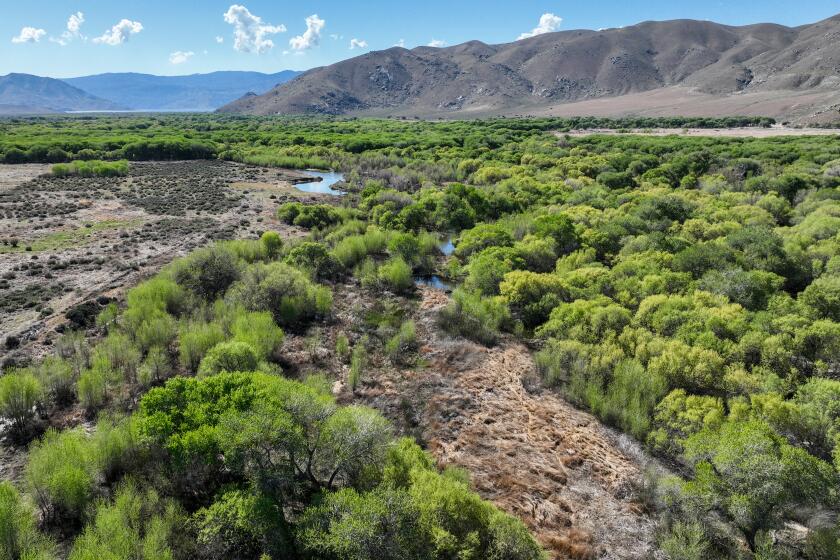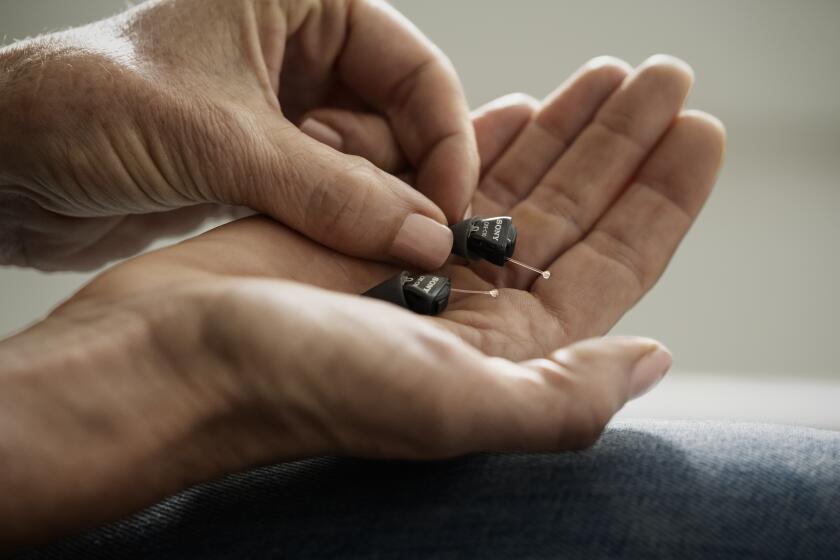A Caveman Mentality : Are Angelenos’ Hormones in a Constant State of Surge?
It is spring, and the voice of the scientist is heard in the land.
Have you noticed that psychologists, biologists and physiologists have usurped the subjects that used to belong to poets?
When I was growing up, all I knew and needed to know of spring was expressed in Tennyson’s immortal line:
“In the spring a young man’s fancy lightly turns to thoughts of love.”
The juices rose in all living things. Color came back to the fields and trees. The turtledove sang. Tulips and love were in bloom.
Today, however, our poets rarely sing of spring. They are drawn to darker subjects, like gridlock and the nuclear winter.
Instead, when spring falls upon us, melting the ice, warming the libido and engendering the flowers, the scientists emerge to tell us what it means.
There is indeed such a thing as spring fever, we are told, but it is caused, like so many other human drives, by hormones.
What, hormones again?
Science writer Lowell Ponte, writing some time ago in Reader’s Digest, said that spring fever is caused by a “hormonal spurt” that may be a vestige of our life as cavemen, when we hibernated like bears.
He said: “Springtime sends high levels of sex and growth hormones, as well as cholesterol and sugar, surging through the bloodstream, and this, indeed, can turn a young man’s fancy to thoughts of love.”
In the winter, Ponte contended, people put on fat, like cavemen lying about in their furs, but when spring comes, the brain commands the body to burn off fat, which produces “a burst of energy and vitality that we associate with spring fever.”
If cavemen didn’t actually hibernate, Ponte said, at least they greatly reduced their activities in winter and lived off their fat.
Ponte derives his notions from the late Dr. Frederick Sargent II, of the University of Texas, a pioneer in biometeorology, the science of how weather affects living things.
Sargent showed that whenever the temperature falls below an ideal 70 degrees, the body’s master thermostat (the hypothalamus) orders blood vessels near the skin to contract, thus reducing loss of body heat to the surrounding air.
When the temperature rises, the hypothalamus orders the blood vessels to expand, speeding loss of heat. This neat system allows the body to maintain its normal 98.6 degrees.
For some persons, Ponte says, the change from winter to spring may be exceedingly stressful. “Some of us shift into high gear with a burst of energy. Hormones surge through the blood and can indeed turn a young man’s fancy to thoughts of love.”
Some find this stress unbearable, he says. “Psychiatric hospitals have more admissions when spring fever is raging, and suicide rates are higher in late March and in April.”
Ponte does not say what this human sensitivity to weather means to a resident of Los Angeles, where it is always spring. Are we in a constant state of hormone surge, of sexual energy? Do our fancies turn constantly to thoughts of love?
That might account for the nickname “La-la Land,” and for the epithet “laid back,” which is so often applied to us by people from colder climates.
The only thing Ponte says about Los Angeles is that people who come here from snowy Chicago may feel chilly when they arrive in balmy Los Angeles because their systems are attuned to cold, and the warmth causes them to perspire, which cools them off.
However, I shouldn’t think it would take a Chicagoan long to adjust to the warmth and to feel that surge of libido that evidently affects us constantly in Los Angeles. Welcome to La-la Land.
As persuasive and scientific as all this sounds, I have an idea that the human libido remains in a constant state of alert, through winter storm and spring thaw, and that any healthy young man’s fancy always turns to thoughts of love.
I have an idea that in countries like Finland, where they have that long winter night, there is no falling off in hanky-panky between the sexes, and that, in fact, the prolonged darkness may actually increase it. I suspect that cold and darkness draw more people to the pleasures of the bed than a lovely spring day does.
I also have an idea that our caveman ancestors also expended more sexual energy in winter than in spring. After all, there probably wasn’t much else to do on those winter nights but to go to bed and seek the body warmth of one’s mate; but in the spring, I imagine, the men were eager to be out in the woods chasing bears, and the women to be out gathering berries, or whatever women did in the spring.
If Ponte is right about spring fever being a throwback to cave life, then one of my theories about Angelenos is correct. Since we live in eternal spring, we are not victims of the seasonal swing; we have evolved from hibernation and the spring surge; we live in a state of constant sexual readiness. Thus have we distanced ourselves not only from our Stone Age ancestors but also from the other animals.
It is only one more proof that Angelenos are the most civilized people in the nation.



